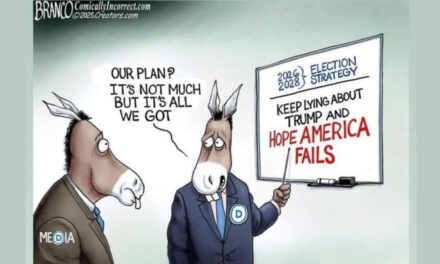
Rouhani Re-elected in Iran, What Does This Mean for the U.S.?
Just a few days ago, Iranian President Hassan Rouhani was re-elected and will remain in office for another four years.
Rouhani, defeated Ebrahim Raisi, a conservative cleric who seemed unsupportive of the nuclear deal with the U.S., by 57 % with 23 million votes.
“With more than 41 million of your votes, you have pulled out the history of our country away from inertia and doubt,” said Rouhani on Saturday after his victory. “I will keep my promises.”
Voter turnout was high this election. Over 70% of eligible Iranians casted their votes.
Many felt if Raisi were to have won, he would have taken the country a few steps backward.
“It’s about 10 or 20 years that people in Iran want to change the condition in Iran. The people now are growing, and the new generation wants new things,” said Massoud Asheri, a 29-year-old engineer for a mining company to NPR. “We also knew very well that should Raisi win, he would bring the same people that were of the (hard line) principalist camp, which would drive the country backward.”
Although Rouhani has made mending relationships with the international community a priority in the past, it doesn’t mean he is ready to play nice.
Rouhani, who has “mended” fences with the EU, just said last week that, “We will break all the sanctions against Iran.”
However, the removal of some of the Iran sanctions has boosted the economy a bit.
“The lifting of sanctions did benefit the economy by increasing oil production. Iran is one of the top oil-producing countries in the world; the CIA ranked it at No. 7 in 2015. Rouhani had promised during the campaign to further undo international sanctions in a second term, Kenyon says,” writes NPR. “But the economy is still sluggish. In mid-2016, unemployment stood at 12.7 percent, a “three-year high,” according to the World Bank. NPR’s Steve Inskeep reports that Rouhani “brought down inflation, but he slowed the economy while doing so.”
President Donald Trump has repeatedly said he wanted to do away with the Iran deal, but this last week the State Department continued to waive sanctions on Iran.
Trump arrived in Saudi Arabia, Iran’s arch-enemy, on Saturday morning to meet with the country’s leaders.
So it’s safe to say tensions between Iran and the U.S. are still high, especially since U.S. allies Israel and Saudi Arabia want to pull Iran back more so into the Middle East.
Secretary of State Rex Tillerson said the U.S. hopes Rouhani will “begin a process of dismantling Iran’s network of terrorism.”
“We also hope that he puts an end to their ballistic missile testing,” said Tillerson in a press conference in Saudi Arabia. “We also hope that he restores the rights of Iranians.”
Rouhani still has to get all of his plans approved by the the 78-year-old supreme leader, Ayatollah Ali Khamenei, who holds all the real power
“Nevertheless, as supreme leader, Ayatollah Khamenei remains the ultimate arbiter in Iran’s opaque political system, and he must approve any further changes sought by Mr. Rouhani,” writes the New York Times. “Yet, the supreme leader has demonstrated a surprising flexibility in recent years. He has permitted Mr. Rouhani to break some decades-old ideological canons when public pressures grow too intense.”
Editor’s note: Don’t get your hopes us here, Rouhani may be a “moderate” to some folks, but in my humble opinion he is likely to screw us over at the first opportunity. If he didn’t have a radical Islamic bent, he would not be acceptably the to religious leadership that really rules the country.

























Larry, Putting out bullshit on Easter Sunday is really blasphemous. The Trump regime in 2019 chose not to deport this…
Larry, this is the thing you call a "what about" comparison used to misdirect attention away the matter at hand.…
Frank vs James which uses the facts to advantage and establish a credible argument to answer Larry's opinion. There's no…
Trump would be better off if he let Powell serve out his term ending in two years. The President has…
Is English your second language? You’re just imagining things and ranting. You seem fixated on bathhouses, dicks, ass, and blacks.…